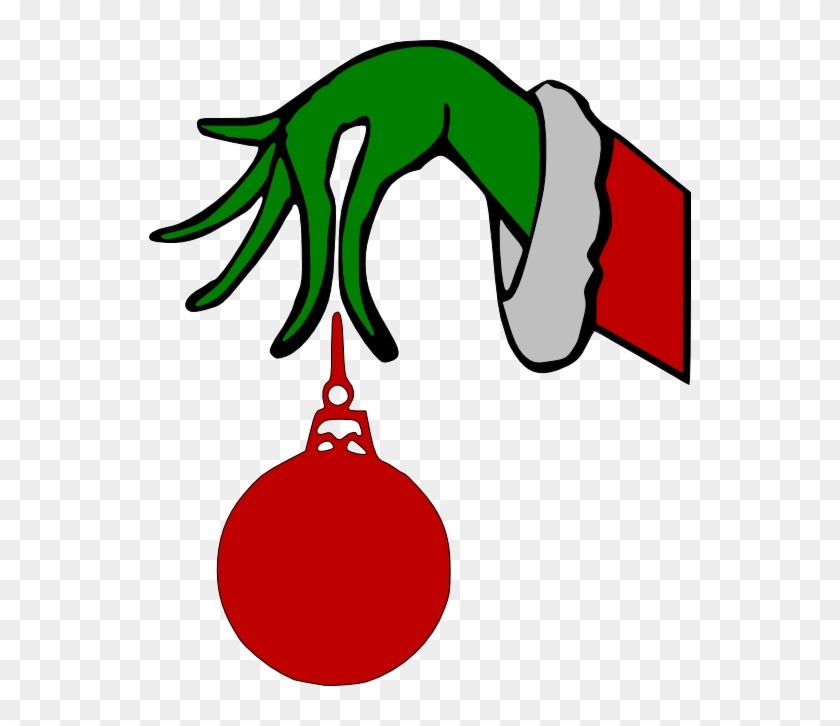Hey there, folks! Let's dive straight into something that might be on your mind if you've ever felt a strange sensation in your hands. Grinch hand might sound like a quirky term, but it's a real condition that affects many people. Whether you're an athlete, a gamer, or just someone who spends hours typing away on your keyboard, this condition could creep up on you when you least expect it. So, buckle up, because we're about to explore everything you need to know about grinch hand.
Now, you might be wondering, "What exactly is grinch hand?" Well, it's not just some random term thrown around by doctors. Grinch hand is a condition where the muscles in your hand tighten up, leading to discomfort, stiffness, and sometimes even pain. Think of it as your hand having a mini tantrum, much like the Grinch in the famous story. But don't worry, we'll break it all down for you and help you understand how to manage it.
Before we get too far into the details, let's talk about why this matters. If you're someone who relies heavily on your hands—whether for work, hobbies, or daily tasks—grinch hand can seriously impact your quality of life. It's not just about the pain; it's about how it affects your ability to do the things you love. So, stick around, and let's figure out how to keep those hands in top shape.
Read also:Tyler Hynes Relationship Status A Deep Dive Into His Love Life
What is Grinch Hand?
Alright, let's get into the nitty-gritty of what grinch hand really is. Simply put, grinch hand refers to a condition where the muscles and tendons in your hand become overly tight, leading to discomfort or pain. It's kind of like when your legs cramp up after a long run, except this happens in your hand. The muscles get all bunched up, and it can make even simple tasks feel like a chore.
There are a few key symptoms to watch out for. First, you might notice stiffness in your fingers or palm. Second, there could be a dull ache or sharp pain that comes and goes. Lastly, you might find it harder to grip things or perform tasks that require fine motor skills. If any of these sound familiar, you might be dealing with grinch hand.
Causes of Grinch Hand
Now that we know what grinch hand is, let's talk about what causes it. There are several factors that can contribute to this condition. Repetitive hand movements, like typing or playing video games, can strain the muscles over time. Poor posture or ergonomics at your workstation can also play a role. And let's not forget about stress—yes, emotional stress can manifest physically and lead to muscle tension in your hands.
Another common cause is a lack of proper stretching or warm-up before engaging in activities that require a lot of hand movement. Think about it—would you run a marathon without warming up first? Probably not. The same goes for your hands. If you jump straight into typing or gaming without giving your hands a chance to loosen up, you're setting yourself up for trouble.
How Common is Grinch Hand?
You're not alone if you're dealing with grinch hand. In fact, it's more common than you might think. Studies suggest that up to 30% of people who spend long hours using their hands for work or hobbies experience some form of hand discomfort. That's a pretty significant number, and it highlights just how prevalent this condition is in our modern world.
Interestingly, grinch hand doesn't discriminate based on age or occupation. Whether you're a young gamer or an older professional, anyone can be affected. The key is recognizing the signs early and taking steps to manage the condition before it becomes a bigger issue.
Read also:Whitney Cummings Transgender The Journey Of Identity And Acceptance
Who is Most at Risk?
Certain groups of people are more likely to experience grinch hand. For example, office workers who spend hours typing on a keyboard are at higher risk. Gamers who engage in intense sessions without taking breaks are also susceptible. Even musicians, artists, and craftspeople who rely on their hands for their craft can fall victim to this condition.
It's worth noting that lifestyle factors can also increase your risk. If you lead a sedentary lifestyle or don't prioritize hand and wrist health, you're more likely to encounter issues. On the flip side, staying active and practicing good hand hygiene can go a long way in preventing grinch hand.
Diagnosing Grinch Hand
So, how do you know for sure if you have grinch hand? The first step is recognizing the symptoms. If you're experiencing persistent hand stiffness, pain, or difficulty with grip strength, it's time to take action. Start by evaluating your daily habits and identifying any potential triggers.
If self-diagnosis isn't enough, consider consulting a healthcare professional. They can perform a physical examination and, if necessary, recommend imaging tests like X-rays or MRIs to rule out other conditions. Sometimes, grinch hand can mimic symptoms of carpal tunnel syndrome or arthritis, so it's important to get an accurate diagnosis.
When to See a Doctor
While mild cases of grinch hand can often be managed at home, there are times when professional help is necessary. If your symptoms persist for more than a few weeks or worsen over time, it's a good idea to see a doctor. Similarly, if you experience severe pain, swelling, or loss of function in your hand, don't hesitate to seek medical attention.
Your doctor may refer you to a specialist, such as a physical therapist or hand specialist, for further evaluation and treatment. Remember, early intervention can make a big difference in managing grinch hand effectively.
Treatment Options for Grinch Hand
Once you've identified grinch hand as the culprit behind your hand discomfort, it's time to explore treatment options. The good news is that there are plenty of ways to manage this condition, both at home and with professional help. Let's break it down.
Home Remedies
One of the simplest ways to tackle grinch hand is through home remedies. Start by taking regular breaks from activities that strain your hands. Stretching exercises can also be incredibly beneficial. Try these quick and easy stretches:
- Gently flex and extend your fingers to loosen up the muscles.
- Make a fist and then slowly open your hand, spreading your fingers wide.
- Use your opposite hand to gently massage the affected hand.
In addition to stretching, applying heat or cold therapy can help reduce pain and inflammation. Experiment with both to see which works best for you.
Professional Treatments
If home remedies aren't cutting it, professional treatments might be the answer. Physical therapy is a popular option for managing grinch hand. A therapist can guide you through targeted exercises to strengthen your hand muscles and improve flexibility. They may also use techniques like massage or ultrasound therapy to alleviate symptoms.
In more severe cases, your doctor might recommend medications or injections to reduce inflammation and pain. Surgery is rarely necessary but could be considered as a last resort if other treatments fail.
Preventing Grinch Hand
As the saying goes, prevention is better than cure. There are several steps you can take to reduce your risk of developing grinch hand. First and foremost, maintain good ergonomics at your workstation. Make sure your chair, desk, and keyboard are positioned to minimize strain on your hands and wrists.
Next, incorporate regular hand exercises into your daily routine. Even a few minutes of stretching each day can make a big difference. And don't forget to take breaks! Set reminders to stand up, stretch, and move around every hour or so. Your hands—and your whole body—will thank you for it.
Tips for Gamers and Desk Workers
For gamers and desk workers, there are some specific tips to keep in mind. Invest in ergonomic accessories like wrist rests and gaming mice designed to reduce strain. Adjust your keyboard height so your wrists remain in a neutral position while typing. And most importantly, listen to your body—if something feels uncomfortable, it probably is!
The Impact of Grinch Hand on Daily Life
Grinch hand can have a significant impact on your daily life, especially if left untreated. Imagine struggling to button your shirt, open a jar, or even hold a coffee cup. These seemingly simple tasks can become frustrating and exhausting when your hands aren't functioning properly.
But it's not just about physical limitations. Grinch hand can also affect your mental well-being. Chronic pain and discomfort can lead to stress and anxiety, creating a vicious cycle that's hard to break. That's why it's crucial to address the condition early and take steps to manage it effectively.
Managing Emotional Well-Being
If you're dealing with grinch hand, don't underestimate the importance of mental health. Practice stress-reducing techniques like deep breathing, meditation, or yoga. These activities can help relax your entire body, including your hands. Plus, they're great for overall well-being!
Conclusion
Alright, folks, we've covered a lot of ground when it comes to grinch hand. From understanding what it is to exploring treatment options and prevention strategies, you now have a comprehensive toolkit for managing this condition. Remember, early intervention and consistent care are key to keeping your hands healthy and functional.
So, what's next? If you suspect you have grinch hand, start by evaluating your habits and making necessary adjustments. If symptoms persist, don't hesitate to seek professional help. And most importantly, share this information with others who might benefit from it. Knowledge is power, and together, we can combat grinch hand one hand at a time.
Oh, and before you go, drop a comment below and let us know if you've ever dealt with grinch hand or have any tips for managing it. Your insights could help someone else in need. Thanks for reading, and take care of those hands!
Table of Contents


